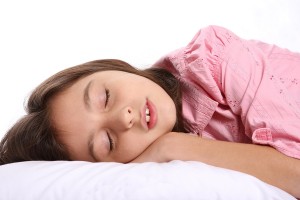 I haven’t read Go the F**k to Sleep, but I understand the sentiment. All parents have been in the situation when our children will not settle down and go to sleep. It is especially frustrating when you have plans for their snoozing time and patience runs thin, or you worry about your child being exhausted the next day.
I haven’t read Go the F**k to Sleep, but I understand the sentiment. All parents have been in the situation when our children will not settle down and go to sleep. It is especially frustrating when you have plans for their snoozing time and patience runs thin, or you worry about your child being exhausted the next day.
There are many strategies to ease your children to bed on time:
- Make sure they get enough exercise throughout the day
- Eat dinner early
- Avoid caffeine (it’s in chocolate)
- Take a hot bath
- Read to them
What you do prior to sleep onset is very important. New research has found screen time to cause later sleep onset.
Just published in Pediatrics, “Presleep Activities and Time of Sleep Onset in Children” studied over 2000 children in New Zealand ages five to 18. The children self-reported their presleep activities ranging from “screen sedentary time, nonscreen sedentary time, and self-care” for the 90 minutes prior to bedtime. Television watching was the most popular screen activity and dominated half an hour of this time.
RESULTS: In the entire sample, television watching was the most commonly reported activity, and screen sedentary time accounted for ∼30 minutes of the 90-minute presleep period. Participants with a later sleep onset had significantly greater engagement in screen time than those with an earlier sleep onset. Conversely, those with an earlier sleep onset spent significantly greater time in nonscreen sedentary activities and self-care.
CONCLUSIONS: Screen sedentary time dominated the presleep period in this sample and was associated with a later sleep onset. The development of interventions to reduce screen-based behaviors in the presleep period may promote earlier sleep onset and ultimately improved sleep duration in young people.
What are your bedtime routines in your family? I have typically only thought about the 15-30 minutes prior to bedtime when we put on jammies, brush our teeth, and read a picture book as our routine. If you go back as far as an hour and half, as they did in this study, you might find screen time applicable.
I think this extended time duration for presleep activities is important to consider when expecting our children to transition from wakefulness to dreamland. We should consider what we are doing as a family the full 90 minutes prior to bedtime if we expect quick sleep onset in our children.
I assume this information would be applicable to adult sleep behaviors as well. After my children go to bed, it is “adult TV time”. Perhaps this is not the best transitional activity for my own sleep onset.
Photo: Young Girl/Child Sleeping on Bigstock
For our two kids, after playing or watching tv, they have a bedtime snack, and we turn the tv to a soft music program. Then, after brushing their teeth and getting their pjs on, they give us a 5 minute “concert” where they sing and dance (they made this routine up, not us). We then get to “vote” on the best part of their concert, and they say who wins (my wife or I or, on the weekends, Grandma.) Then it’s two stories, and off to bed.
My 6 year old is always out like a light … my 3 year old, however, is likely why “Go the F**k to Sleep” was written! We think it’s because our 6 year old is now full time in school, and our 3 year old still takes afternoon naps.